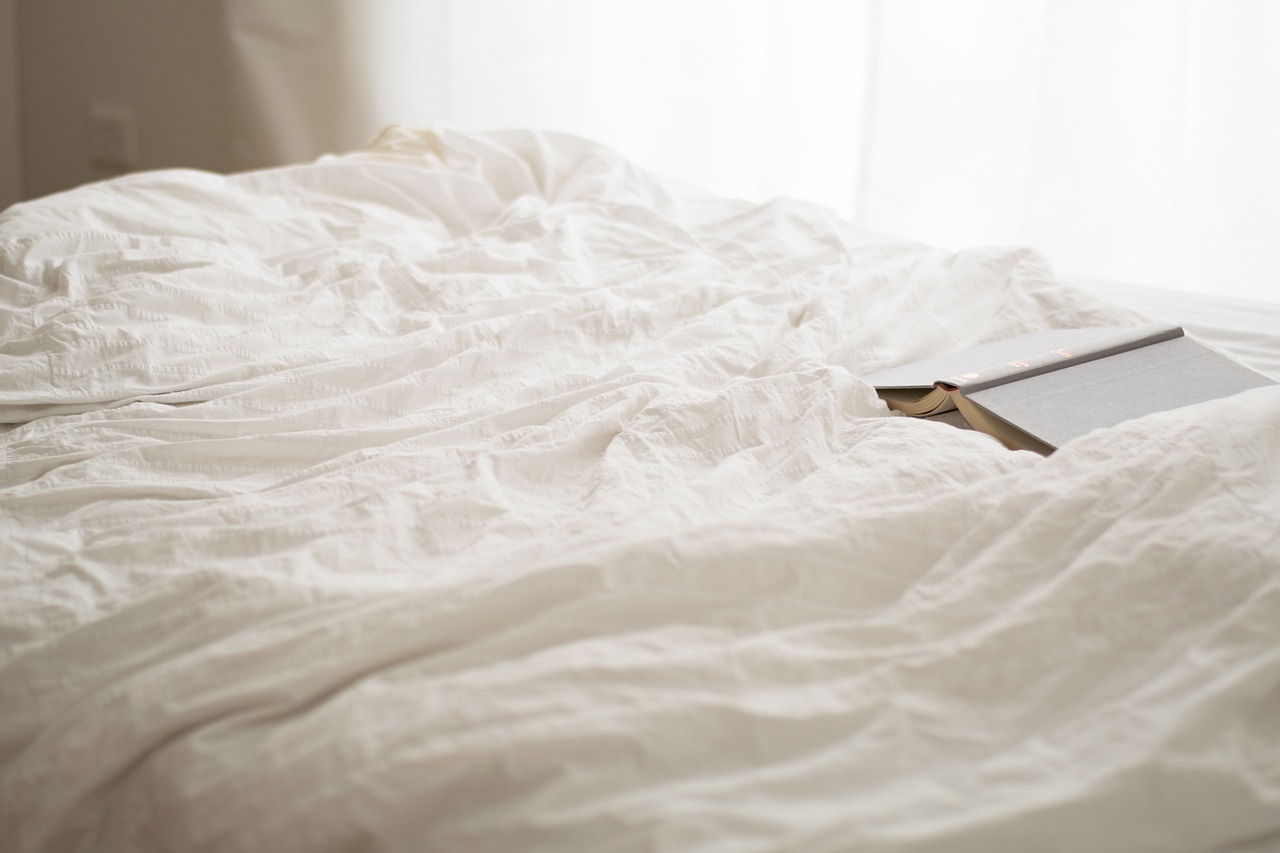Are you struggling with sleep disturbances and wondering if bed bugs could be the culprit?
Bed bug infestations have become a growing concern in recent years, and their impact on sleep disorders is a topic of increasing interest.
Research suggests that these tiny bloodsucking insects can indeed disrupt your sleep patterns and contribute to a range of sleep-related issues.
When bed bugs invade your living space, they can cause intense itching and discomfort, leading to difficulties in falling asleep and staying asleep throughout the night.
Additionally, their presence can trigger allergies and respiratory problems, exacerbating sleep-related symptoms.
Moreover, the psychological toll of dealing with a bed bug infestation can take a toll on your mental health and emotional well-being, further compromising your sleep quality.
Fortunately, there are prevention and treatment strategies available to combat bed bug infestations and improve your sleep.
This article will explore the role of bed bugs in sleep disorders, examining the scientific evidence behind their impact on sleep and providing practical guidance on prevention and treatment.
If you’re seeking a good night’s sleep, understanding the role of bed bugs is a crucial step towards achieving restful nights.
Bed Bug Infestations and Sleep Disturbances
Bed bug infestations can seriously disrupt your sleep, leaving you tossing and turning all night. These tiny insects, known for their ability to hide in mattresses, furniture, and cracks in walls, feed on human blood during the night. Their bites can cause itching, redness, and discomfort, leading to sleep disturbances.
Studies have shown that bed bug infestations are associated with increased sleep disturbances, including difficulty falling asleep, frequent awakening during the night, and overall poor sleep quality. The presence of bed bugs in the bedroom can create a psychological impact, leading to anxiety and stress, further exacerbating sleep problems. Additionally, the fear of being bitten by bed bugs can result in hyper-vigilance, making it even harder to relax and fall asleep.
Therefore, addressing bed bug infestations is crucial in improving sleep quality and overall well-being.
Allergies and Respiratory Issues
Bed bug allergens can have a significant impact on your sleep quality. The presence of these allergens can cause allergic reactions, leading to symptoms such as itching, redness, and swelling.
Additionally, bed bug infestations can trigger respiratory symptoms, including coughing, wheezing, and difficulty breathing.
It’s crucial to address these issues promptly to ensure a restful and healthy sleep environment.
Bed bug allergens and their impact on sleep
Exposure to allergens from these tiny pests can significantly disturb the quality of your sleep. Bed bug allergens, such as proteins found in their saliva, feces, and exoskeletons, can trigger allergic reactions in sensitive individuals. These reactions can range from mild itching and redness to more severe symptoms like difficulty breathing and asthma attacks.
Research has shown that bed bug allergens can persist in the environment for long periods, even after the bugs have been eradicated. This means that even if you no longer have an infestation, the allergens left behind can still affect your sleep. Furthermore, studies have found a correlation between exposure to bed bug allergens and the development of sleep disorders, such as insomnia and restless leg syndrome.
Therefore, it’s crucial to address bed bug infestations promptly and effectively to minimize their impact on your sleep and overall well-being.
Respiratory symptoms caused by bed bug infestations
Imagine waking up with a stuffy nose, sneezing, and coughing, all because of those pesky little critters hiding in your home. Bed bug infestations can lead to respiratory symptoms that disrupt your sleep and overall health.
These tiny pests release allergens into the air, triggering allergic reactions in susceptible individuals. Research has shown that bed bug allergens can cause nasal congestion, runny nose, sneezing, and even asthma attacks in some cases. The presence of these allergens in your sleeping environment can lead to chronic respiratory symptoms, making it difficult to achieve restful sleep.
Furthermore, the constant exposure to bed bug allergens can exacerbate existing respiratory conditions and compromise the respiratory system’s overall function. It’s crucial to address bed bug infestations promptly to mitigate the negative impact on sleep and respiratory health.
Mental Health and Emotional Well-being
Sleeping with bed bugs can take a toll on your mental health and emotional well-being. The constant stress and anxiety caused by these infestations can have a profound impact on your overall psychological state. Research has shown that individuals living in bed bug-infested environments are more likely to experience symptoms of depression, anxiety, and insomnia.
The fear of being bitten during sleep can lead to a heightened state of vigilance and hyperarousal, making it difficult to relax and fall asleep. Additionally, the psychological distress caused by the presence of bed bugs can result in social isolation and decreased quality of life.
It is important to address the mental health implications of bed bug infestations alongside the physical symptoms to ensure comprehensive treatment and support for those affected.
Bed Bug Prevention and Treatment
To prevent bed bug infestations, there are several steps you can take. First, make sure to inspect your luggage and clothing after traveling to ensure you haven’t brought any bed bugs home with you.
Additionally, regularly vacuum your home, especially around the bed area, and wash and dry bedding and clothing at high temperatures.
If you do find yourself dealing with a bed bug infestation, there are professional treatment options available, such as heat treatments or insecticide treatments, which have been shown to effectively eliminate bed bugs.
However, if you prefer a do-it-yourself approach, there are also DIY methods for getting rid of bed bugs, such as using mattress encasements, steam cleaning, and applying insecticides specifically labeled for bed bug control.
Steps to prevent bed bug infestations
To prevent bed bug infestations, you need to regularly inspect your bedding and furniture for any signs of these pests. Bed bugs are small, flat insects that hide in the cracks and crevices of furniture, mattresses, and even electrical outlets.
Look for dark spots or stains on your sheets, which could be bed bug excrement, as well as tiny reddish-brown bugs or their discarded shells. Vacuum your mattress, box spring, and furniture regularly to remove any potential hiding places.
Encase your mattress and box spring in bed bug-proof covers to prevent them from infesting these areas. Avoid bringing used furniture or mattresses into your home, as they may be harboring bed bugs.
If you suspect an infestation, contact a professional pest control company to assess the situation and develop a treatment plan. By following these steps, you can reduce the risk of bed bug infestations and ensure a good night’s sleep.
Professional treatment options
One option for dealing with bed bug infestations is to hire a professional pest control company. These experts have the knowledge, skills, and equipment necessary to effectively eradicate bed bugs from your home.
They will conduct a thorough inspection to identify the extent of the infestation and develop a targeted treatment plan. Professional treatments often involve the use of chemical pesticides that are specifically formulated to eliminate bed bugs. These products are applied in key areas where bed bugs are likely to hide, such as cracks, crevices, and furniture.
Additionally, professional pest control companies may use techniques like steam treatment or heat treatment to kill bed bugs and their eggs. These methods have been proven to be highly effective in eliminating bed bugs and preventing reinfestations.

When considering professional treatment options, it’s important to choose a reputable company that’s licensed and experienced in dealing with bed bug infestations.
DIY methods for getting rid of bed bugs
If you’re determined to take matters into your own hands, there are several DIY methods you can try to effectively eliminate those pesky bed bugs. While professional treatment options are often recommended for severe infestations, there are steps you can take to tackle the problem on your own.
One effective method is to thoroughly clean and declutter your home. Vacuuming all surfaces, including mattresses, furniture, and carpets, can help remove bed bugs and their eggs. Washing infested bedding and clothing in hot water and drying them on high heat can also kill these pests.
Additionally, using a steamer to treat infested areas can be beneficial. The high temperatures generated by the steamer can kill bed bugs and their eggs on contact. It’s important to focus on areas such as mattress seams, furniture crevices, and baseboards.
While these DIY methods can help eliminate bed bugs to some extent, it’s important to note that they may not be as effective as professional treatments. If the infestation persists or worsens, it’s recommended to seek professional help to ensure complete eradication.
Seeking Help and Support
When it comes to dealing with bed bugs, it’s important to seek professional assistance. Bed bug infestations can be difficult to eliminate on your own, and professional exterminators have the knowledge and tools to effectively treat the problem.
Additionally, support groups and resources are available for those affected by bed bugs, providing a sense of community and guidance through the process.
Addressing the emotional and mental health aspects of dealing with bed bugs is also crucial, as the presence of these pests can be distressing and impact your well-being.
Importance of seeking professional assistance
Seeking professional assistance is crucial when dealing with bed bug infestations in order to effectively address sleep disorders. While it may be tempting to attempt to eradicate the infestation on your own, studies have shown that professional intervention yields better results.
Bed bug infestations can be challenging to eliminate completely, as these pests are highly resilient and can hide in hard-to-reach places. Professional pest control experts have the knowledge, experience, and access to specialized tools and treatments that are proven to be effective in eradicating bed bugs. They can conduct thorough inspections, identify the extent of the infestation, and develop a targeted treatment plan tailored to your specific situation.
Additionally, professional assistance can provide you with valuable guidance on preventing future infestations and ensuring a safe and healthy sleeping environment. Don’t underestimate the importance of seeking professional help to address the role of bed bugs in sleep disorders effectively.
Support groups and resources for those affected by bed bugs
Support groups and resources can offer valuable assistance to individuals affected by bed bug infestations, providing a sense of community and access to helpful information and coping strategies. These support groups play an essential role in addressing the psychological impact of bed bug infestations.
They provide a safe space for individuals to share their experiences, express their emotions, and receive support from others who have gone through similar situations. In these groups, individuals can gain knowledge about bed bug prevention, identification, and treatment options. They also learn effective coping mechanisms to manage the stress, anxiety, and sleep disturbances caused by bed bug infestations.
Additionally, resources such as online forums, websites, and helplines offer easily accessible information, practical advice, and expert guidance. By utilizing these support groups and resources, individuals can find solace, empowerment, and the tools needed to overcome the challenges posed by bed bugs.
Addressing the emotional and mental health aspects of dealing with bed bugs
Moving on from discussing support groups and resources for those affected by bed bugs, let’s now delve into addressing the emotional and mental health aspects of dealing with these pests.
When facing a bed bug infestation, it’s natural to experience a range of emotions, including fear, anxiety, and frustration. These emotional responses can have a significant impact on one’s mental well-being and overall quality of life.
Studies have shown that individuals dealing with bed bugs may experience symptoms of depression, insomnia, and increased stress levels. Furthermore, the constant worry about bed bugs can lead to hypervigilance and sleep disturbances, exacerbating the negative effects on mental health.
It’s crucial to acknowledge and address these emotional and mental health aspects to promote better sleep and overall well-being in individuals affected by bed bugs.
Frequently Asked Questions
How do bed bug infestations affect the quality of sleep?
Bed bug infestations can significantly impact sleep quality. Their bites cause discomfort, itching, and skin irritations that can lead to sleep disturbances. Studies show a strong association between bed bug presence and sleep disruptions, ultimately affecting overall sleep efficiency.
Can bed bug bites cause allergies or respiratory issues?
Yes, bed bug bites can cause allergies and respiratory issues in some individuals. Studies have shown that the allergenic proteins in bed bug saliva can trigger allergic reactions and respiratory symptoms such as coughing and wheezing.
Do bed bug infestations have any impact on mental health and emotional well-being?
Bed bug infestations can have a significant impact on mental health and emotional well-being. Studies have shown that individuals dealing with bed bugs often experience increased stress, anxiety, and insomnia, affecting their overall quality of life.
What are some effective ways to prevent and treat bed bug infestations?
To prevent and treat bed bug infestations, regularly inspect your bedding and furniture, vacuum frequently, seal cracks and crevices, wash infested items in hot water, and use insecticides as directed. Seek professional help if needed.
Where can individuals seek help and support if they are dealing with a bed bug infestation?
If you’re dealing with a bed bug infestation, seek help and support from professional pest control services or local health departments. They can provide guidance on effective treatment options and offer resources to address the issue.
Conclusion
In conclusion, the presence of bed bugs can have a significant impact on sleep disorders. The bites and itching caused by these pests can lead to sleep disturbances, affecting both physical and mental well-being.
Furthermore, allergies and respiratory issues may arise from prolonged exposure to bed bug infestations, exacerbating sleep problems.
It’s crucial to prioritize bed bug prevention and treatment measures to ensure a good night’s sleep and overall health. Seeking help and support from professionals can provide effective solutions to mitigate the negative effects of bed bugs on sleep.










